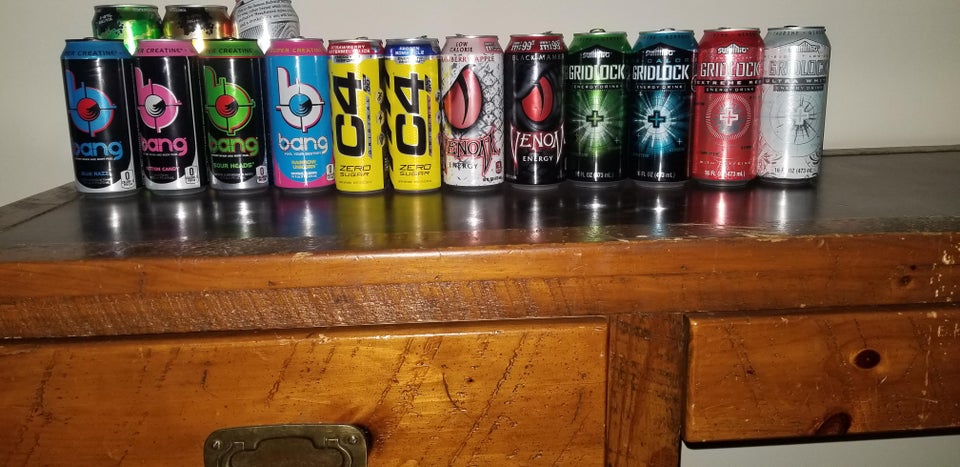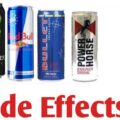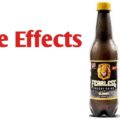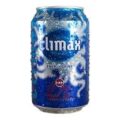What are Energy Drinks?
Energy drinks are widely promoted as products that increase energy and enhance mental alertness and physical performance. Next to multivitamins, energy drinks are the most popular dietary supplement consumed by American teens and young adults. Men between the ages of 18 and 34 years consume the most energy drinks, and almost one-third of teens between 12 and 17 years drink them regularly.
There are two kinds of energy drink products. One is sold in containers similar in size to those of ordinary soft drinks, such as a 16-oz. bottle. The other kind, called “energy shots,” is sold in small containers holding 2 to 2½ oz. of concentrated liquid. Caffeine is a major ingredient in both types of energy drink products—at levels of 70 to 240 mg in a 16-oz. drink and 113 to 200 mg in an energy shot. (For comparison, a 12-oz. can of cola contains about 35 mg of caffeine, and an 8-oz. cup of coffee contains about 100 mg.) Energy drinks also may contain other ingredients such as guarana (another source of caffeine sometimes called Brazilian cocoa), sugars, taurine, ginseng, B vitamins, glucuronolactone, yohimbe, carnitine, and bitter orange.
Why Don’t Energy Drinks Work On Me?
Energy drinks may not be working for you because your body has built a tolerance to the ingredients in the drink, especially caffeine. Experts say people who take a lot of caffeine-based products like energy drinks develop a tolerance to its stimulatory effects. While caffeine can give people a buzz, raising alertness, the effect only works in those unused to the drink, according to a study published in the Neuropsychopharmacology journal.
According to studies, caffeine enters the bloodstream within 10 minutes of consuming an energy drink, triggering a rise in heart rate and blood pressure, over the next 15-45 minutes, caffeine levels in the bloodstream peak. As a result, an individual will feel more alert and experience improved concentration. Caffeine is a crafty drug that gives you a boost while allowing ‘feel good’ molecules in the brain – such as dopamine – to be released more readily. You feel more alert and you feel better about yourself but as you do this over and over again the body builds tolerance and eventually stops responding to the effects of the drink.
Taking more energy drinks to overcome the tolerance often leads to more problems like insulin resistance, tooth decay, and diabetes. Energy drinks cause health problems not because they contain sugar and caffeine, but because they have so much sugar and caffeine that they can hurt your body.
Many energy drinks pack about 200 mg of caffeine, the amount in two cups of brewed coffee. Other substances purported to increase energy may be added, like B vitamins and herbs such as ginseng and guarana. Most concerning is a lack of regulation about the safety of these drinks, as well as aggressive marketing tactics geared toward adolescents. The Centers for Disease Control and Prevention reported that in 2007, 1,145 adolescents ages 12 to 17 went to the emergency room for an energy drink-related emergency. In 2011 that number climbed to 1,499.
How do energy drinks impact your body?
When you chug an energy drink, you assume you’ll feel energized. It’s an energy drink after all. And you probably will get a little pep in your step for a while. Energy drinks are full of caffeine and sugar, both of which can get your body moving temporarily. It’s all the other things that happen when you drink an energy drink that you should be concerned about. Energy drinks can:
- Increase blood pressure
- Increase your risk for irregular heart rhythms
- Impact your sleep
- Cause weight gain
- Cause tooth decay
- Contribute to mental health problems
- Increase diabetes risk
- Cause kidney damage
- Contribute to substance abuse problems.






